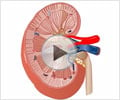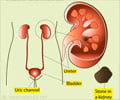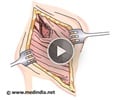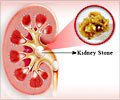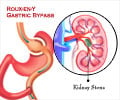Types of Kidney Stones
Diet may vary depending on the type of kidney stones. Stones maybe any of the five types - calcium oxalate, calcium phosphate, uric acid, struvite and cystine stones.
Calcium Oxalate Stones
These are the most common types of stones. They are small and spiky and can cause acute colic when they travel down from the kidney. Sometimes they can cause bleeding from the urinary tract. Calcium oxalate occurs when calcium binds with oxalate, a mineral found in certain plants. Calcium oxalate stones form when ingested oxalate combines with calcium present in the urine. People with medical conditions that cause high urine calcium levels are at risk for the stones thus formed.
Calcium Phosphate Stones
These are formed when other underlying health conditions are present, especially renal tubular acidosis (RTA) or hyperparathyroidism. They usually have a smooth surface, are hard and grow to a large size and can damage the kidneys.
Uric Acid Stones
These occur when there is excessive uric acid in the blood and/or in the urine. Common causes of high blood uric acid levels are gout and certain metabolic disorders. One known dietary cause is eating a lot of animal protein or drinking red wine.
Struvite Stones
These are associated with urinary tract infections. Women and children are more susceptible to forming these stones than men. They can also grow into a large size in the kidney and damage the kidney.
Cystine Stones
The occurrence of cystine stones is rare and arises out of a genetic condition known as cystinuria.


